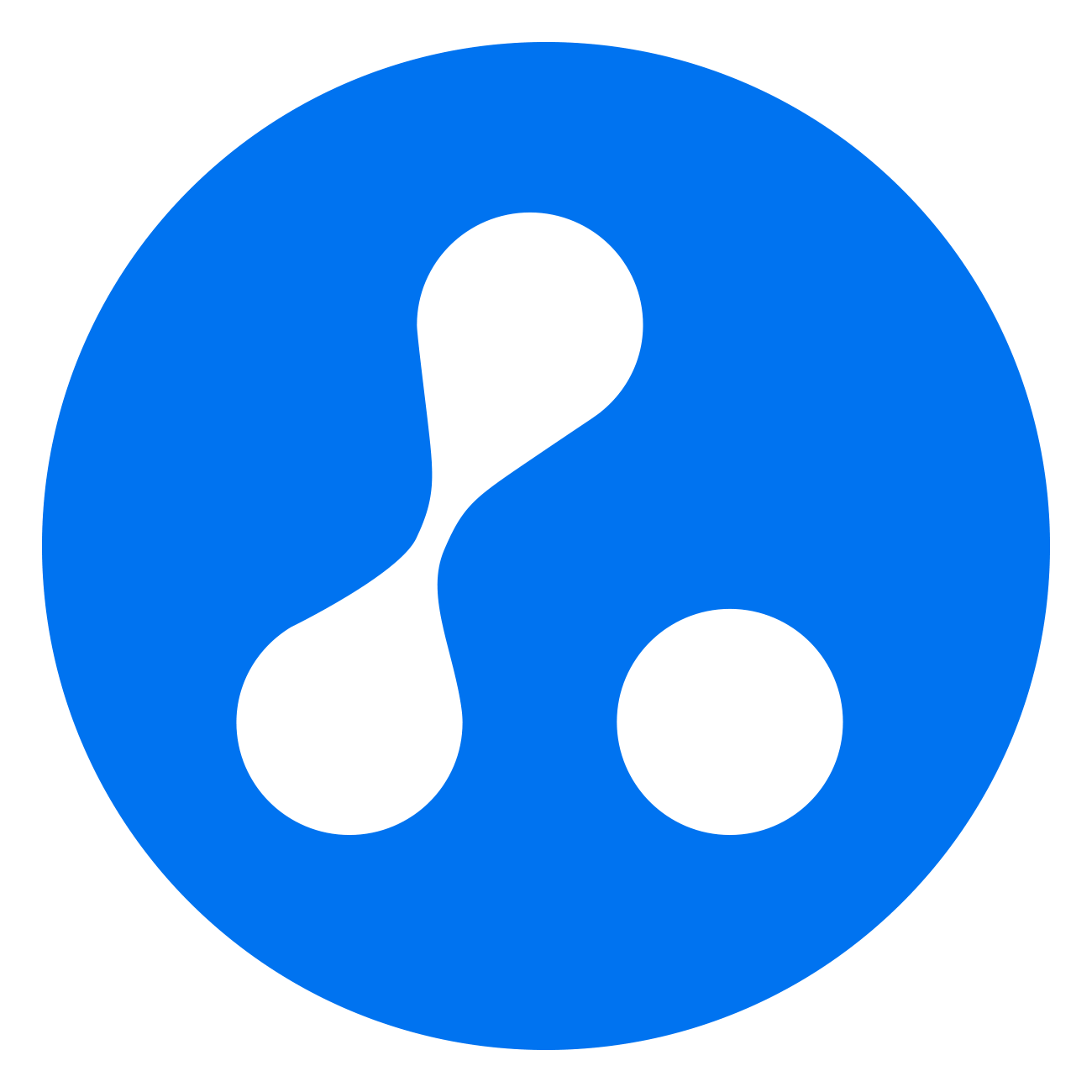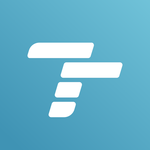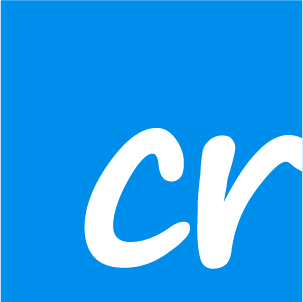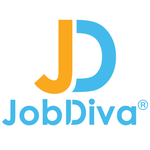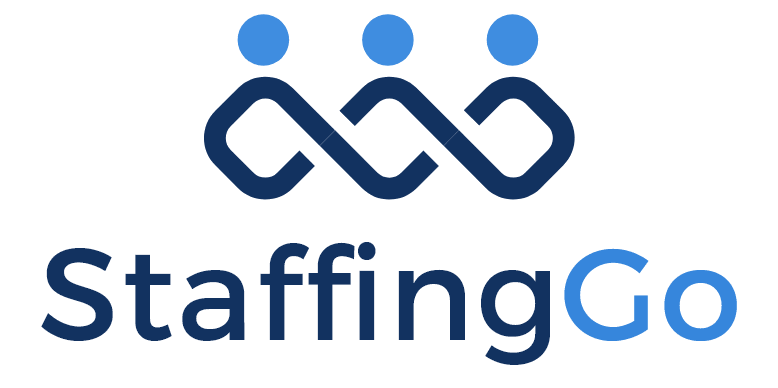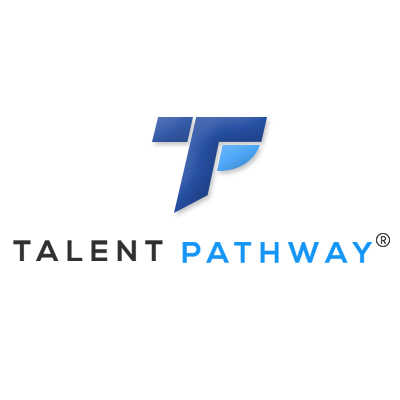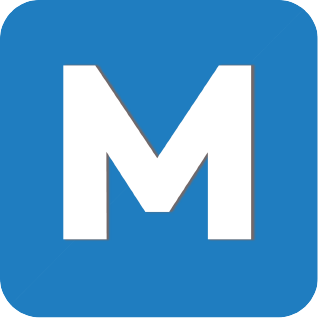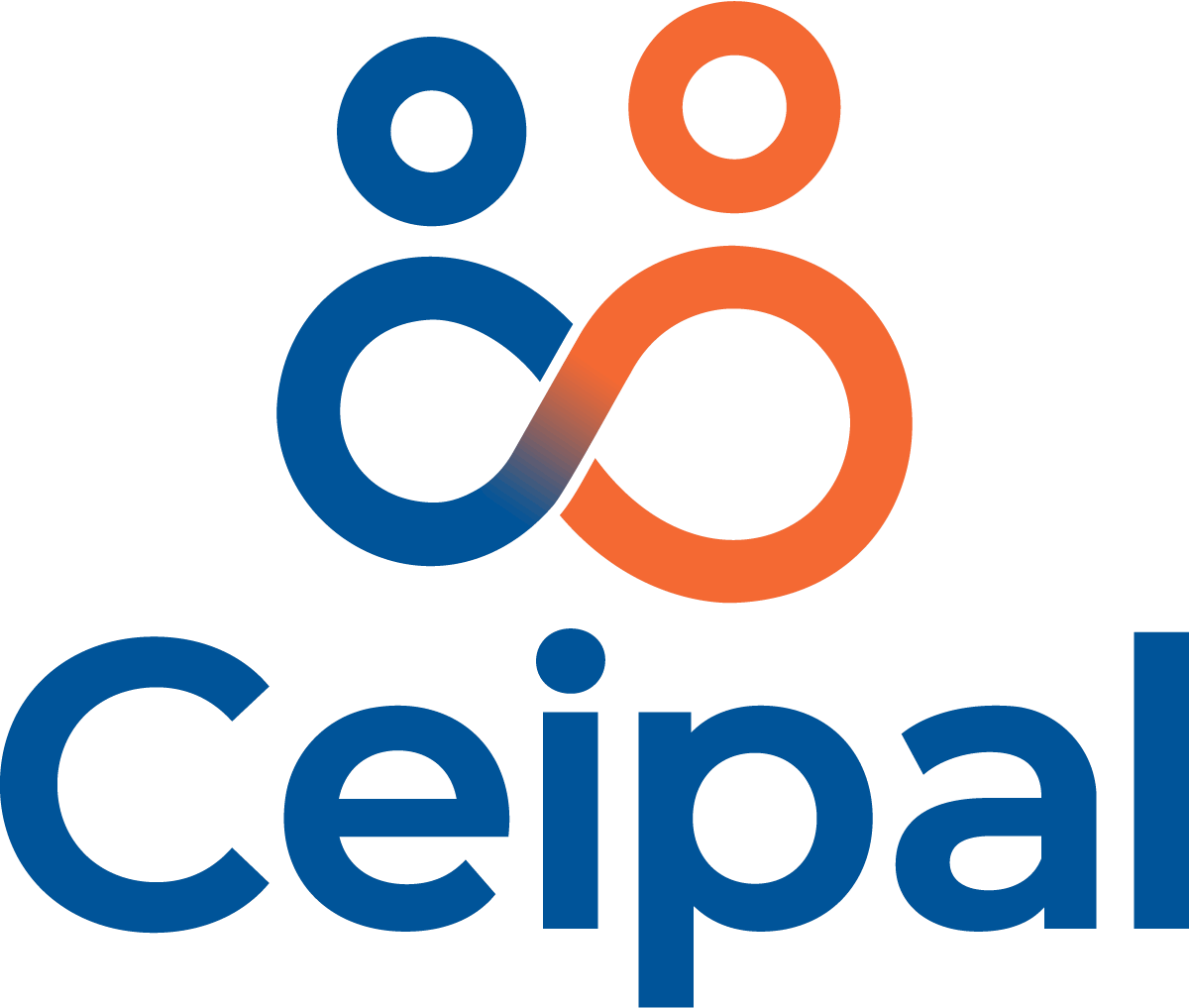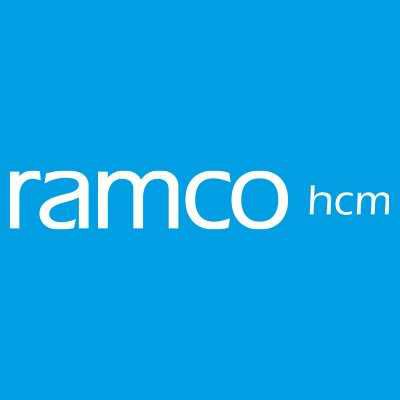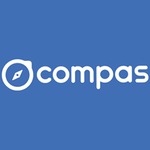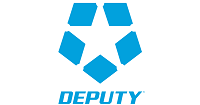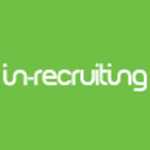Yes, most staffing software solutions are web-based and accessible from a variety of devices and platforms, including PCs, laptops, tablets, and smartphones. These software platforms are designed to be responsive and available via any modern browser, allowing recruiters and HR professionals to access critical data and workflows from anywhere and at any time. This flexibility enables more effective and streamlined staffing practices, which ultimately saves time and boosts production.
List of 20 Best Staffing Software
Recruiterflow the recruitment software designed for staffing and recruiting agencies. Easily source candidates, automate emails, and save time on administrative tasks with just one click. Eliminate the hassles and stay focused on your core competency...Read More Recruiterflow
Experience the superior performance of Recruiterbox is a applicant tracking system for effortlessly managing job applications. Our cutting-edge recruitment software beats email and competitors in terms of efficiency and user-friendliness. As the top...Read More Recruiterbox
Avionte is versatile recruitment software that is specifically designed to cater to the needs of both large and small businesses. It efficiently collects and analyzes customer data, offering valuable insights such as performance metrics and sales str...Read More Avionte
Tempest is a Workforce Management software built for SMEs and agencies. Developed exclusively for Windows, Tempest provides a complete suite of tools, including Scheduling, Variable Workforce management, and Time & Attendance tracking, to streamline...Read More Tempest
With Crelate Talent, you have complete control over your job boards to meet your specific hiring needs. Stay organized and efficiently manage candidate applications with customizable filters. Take advantage of the best applicant tracking software to...Read More Crelate Talent
JobDivais a recruitment tool that connects you to your candidates, clients, and suppliers effortlessly. Streamline your hiring process with our advanced applicant tracking system, freeing up your time to focus on other critical tasks. Enjoy unparalle...Read More JobDiva
Chat Technologies is a chat management solution for your post application platform. Our software revolutionizes the way you communicate with customers and candidates, eliminating the hassle of outdated 1:1 conversation tools. With Chat Technologies,...Read More Chat Technologies
xMP Match & Hire, an AI-powered recruitment solution that revolutionizes hiring processes. By seamlessly integrating with your existing systems, this advanced tool utilizes deep learning and HR ontologies to effortlessly match the most suitable candi...Read More xMP Match & Hire
StaffingGo solution for optimizing your staffing business. Our cutting-edge HRMS system manages the entire employee life cycle, from client contract to retirement. Say goodbye to manual processes with our automated features for lead proposals, meetin...Read More StaffingGo
Talent Pathway is a ATS and recruiting software for staffing agencies, firms, and businesses. Simplify your hiring process with our advanced features that help you efficiently manage and monitor recruitment. Say goodbye to manual tasks and hello to a...Read More Talent Pathway
Manatal, a cloud-based ATS solution that simplifies and speeds up your recruitment process, all while minimizing expenses. Leveraging powerful features such as the recommendation tool and candidate enrichment system, Manatal equips you with the tools...Read More Manatal
CEIPAL ATS, a SaaS platform utilizing AI to streamline processes and support staffing and recruiting agencies. This comprehensive solution offers scalable and integrated features, optimizing vacancy identification, accelerating applicant sourcing and...Read More Ceipal ATS
Ramco HCM is a HR solution that simplifies every aspect of the employee journey. This cutting-edge software includes features such as Core HR, Time and Attendance, Global Payroll, Talent Management, Recruitment, and Planning & Analytics. With innovat...Read More Ramco HCM
Nowsta is a labor management software that streamlines staffing, scheduling, and payroll processes for businesses in various industries. Leveraging real-time reporting and a network of thoroughly vetted workers, Nowsta enables organizations to boost...Read More Nowsta
COMPAS is an advanced Applicant Tracking and Recruiting Software that offers seamless integration with leading CRM, Recruiting, and HR tools. It is designed to streamline your hiring process and provide the necessary tools for attracting and acquirin...Read More COMPAS
TrackerRMS, a top-of-the-line customer management solution designed for small and mid-sized businesses. Our software enables you to enhance your customer data and cultivate stronger client relationships. With efficient management of pipelines and sal...Read More TrackerRMS
Vincere is a software solution for ambitious recruiters. Revolutionizing the recruitment game, this fifth-gen software is designed with a user-centric approach, data-driven insights, streamlined processes, and full mobile compatibility. Experience th...Read More Vincere
Driver Schedule is a driver management solution that optimizes efficiency for transportation companies. Perfect for businesses of all sizes, it simplifies driver management and increases overall productivity. Easily track multiple drivers and elevate...Read More Driver Schedule
Deputys top-rated workforce management platform is the go-to solution for more than 10,000 businesses. With powerful features for scheduling, time tracking, and employee communication, Deputy streamlines workplace operations for increased efficiency...Read More Deputy
In-recruiting - the top staffing software solution that simplifies candidate and client management. Say goodbye to multiple installations and hello to accessing the most skilled and affordable talent available. With customizable branches, restriction...Read More In-recruiting
Learn More About Staffing Software
- What Is Staffing Software?
- What Are The Recent Trends In Staffing Software?
- Benefits Of Using Staffing Software
- Important Factors To Consider While Purchasing Staffing Software?
- What Are The Key Features To Look For In Staffing Software?
- Why Do Businesses Need Staffing Software?
- How Much Time Is Required To Implement Staffing Software?
- What Is The Level Of Customization Available In Staffing Software?
- Which Industries Can Benefit The Most From Staffing Software?
- Conclusion
What Is Staffing Software?
Staffing software is a strong tool that streamlines the hiring and administration processes for organizations of all sizes. It is also known as recruitment software or applicant tracking systems (ATS), because it enables businesses to manage their hiring needs more efficiently, from publishing job ads to onboarding new staff. Staffing software streamlines and centralizes the whole recruitment process, saving time and resources while increasing hiring quality.
This software often contains functions including job posting, candidate sourcing and tracking, resume parsing, interview scheduling, and reporting. In addition, certain solutions may include advanced features such as AI-powered prospect screening, skill assessments, and video interviews. Whether you're a small firm looking to expand your team or a large corporation looking to improve your hiring process, investing in staffing software will boost your efficiency and success in identifying the finest candidates for your vacant positions.
What Are The Recent Trends In Staffing Software?
Staffing software has advanced tremendously in recent years, and it is continually adjusting to meet the changing demands of the recruiting and recruitment sector.
Let's explore, we'll look into the current innovations in staffing software that are changing the way businesses manage and streamline their staffing procedures.
1. AI And ML Integration: One of the most noticeable advances in staffing software is the incorporation of AI and ML technology. These sophisticated capabilities enable staffing firms and HR professionals to automate tasks and make data-driven decisions. AI-based algorithms can quickly sift through a huge number of resumes to find the most qualified individuals, whilst machine learning algorithms can evaluate employee data to forecast hiring success and reduce employee attrition.
2. Virtual And Remote Recruitment: With the advent of remote employment, the hiring process has moved to virtual platforms. To streamline the recruitment process, staffing software now includes capabilities such as video interviews, virtual job fairs, and remote onboarding. These solutions not only save time and resources, but also enable businesses to reach a larger pool of people from various locations.
3. Integration Of Social Media Platforms: Social media has become a critical component of every organization's recruitment strategy. Staffing software now supports social media integration, allowing recruiters to contact a bigger pool of prospects and boost their employer brand. This tool also enables them to track and analyze candidate interaction across various social media channels, providing useful information for future recruitment initiatives.
4. Mobile-Friendly Applications: Mobile-friendly solutions have become the new standard in staffing software. Today, job seekers prefer to find and apply for employment using their mobile devices. As a result, staffing software with mobile-friendly interfaces and applications has a competitive advantage in attracting and retaining top talent.
5. Application Tracking System (ATS) Capabilities: Applicant Tracking System (ATS) features have become more user-friendly and configurable, allowing recruiters to oversee the full recruitment process from a single platform. From job posting to candidate screening and onboarding, ATS enables a seamless and efficient workflow, saving time and improving the entire candidate experience.
6. Data Analysis And Reporting: Data analytics and reporting have become crucial components of staffing software. Using dashboards and reports, recruiters may track and evaluate key hiring data such as time-to-fill, cost per hire, and source of hire. These insights help to make data-driven decisions and continuously improve the recruitment process.
Benefits Of Using Staffing Software
Staffing software is a very useful tool for businesses of all sizes, particularly those in the human resources and recruitment industries. It simplifies the hiring process, saves time, and lowers expenses, making it an excellent investment for any firm trying to improve its employment procedures.
Here are some of the main advantages of using staffing software:
1. Improved Efficiency: One of the most major advantages of adopting staffing software is the increased efficiency. It automates critical activities like resume screening, candidate matching, and interview scheduling, allowing HR professionals to focus on other vital areas of their jobs. This results in faster recruitment periods and a more efficient procedure.
2. Cost-Effective: Staffing software reduces costs by eliminating the need for manual labor and the fees associated with traditional recruitment tactics like advertising and publishing. It also reduces the possibility of human error, resulting in accurate data and reducing the need for rehiring owing to poor candidate selection.
3. Improved Candidate Experience: Staffing software makes hiring easier and more efficient for candidates. Candidates can simply apply for jobs, follow the status of their applications, and receive real-time updates using online applications and self-service portals. This increases applicant involvement and gives a positive impression of the organization.
4. Centralized Database: Staffing software enables the establishment of a centralized database, which stores all candidate and employee information in a single secure area. This allows you to easily access and manage candidate information, track recruiting progress, and refer back to previous candidates. It also decreases the danger of data loss while ensuring GDPR compliance.
5. Customization And Integration: Many staffing software solutions have configurable capabilities and integration with other HR software, making it easier to adapt to a company's unique requirements and existing systems. This also results in a more streamlined and efficient recruitment procedure.
6. Real-Time Analytics And Reporting: Staffing software offers HR professionals real-time analytics and reporting, allowing them to monitor critical metrics like time-to-hire, cost-per-hire, and candidate sources. This data can assist identify areas for improvement and inform future employment decisions.
Important Factors To Consider While Purchasing Staffing Software?
The correct software is critical for running a successful staffing company. Staffing software can help you speed the recruitment process, handle employee data, and monitor performance indicators. With so many options on the market, it might be difficult to choose the ideal one for your organization.
To make an informed decision, here are some crucial considerations to consider when selecting staffing software:
1. Features And Functionality: Before purchasing staffing software, assess your company's demands and create a list of the features and functionality you require. Some important elements to look for are applicant tracking, resume parsing, job posting, and onboarding management. Check that the software has the required features to suit your specific needs.
2. Scalability: As your company grows, your staffing software should be able to maintain pace. Look for software that is scalable and can support future growth. This will reduce the difficulty of moving to new software in the future.
3. Integration Capabilities: The staffing software you choose should be compatible with your existing systems, such as payroll and accounting software. This ensures a smooth data flow and eliminates the need for manual data entry, saving time and eliminating errors.
4. User-Friendly Interface: An easy-to-use interface is essential for software efficiency. Look for software with a simple and intuitive design that all team members can browse and utilize.
5. Cost: Pricing is an important consideration when selecting staffing software. Consider the initial investment, monthly or annual fees, and any additional charges for customization or integration. Make careful to select software that is within your budget while still delivering the required features and capabilities.
6. Customer Support: Having responsive customer service can save you time and money in the long term. Look for software with dependable customer support, ideally with many channels of communication.
7. Security And Data Protection: Due to the sensitive nature of the information kept in staffing software, data security and protection must be ensured. Look for software that has encryption and access controls to safeguard the security of your data.
8. User Reviews And Ratings: Reading user reviews and ratings is an excellent technique to judge the performance of staffing software. Look for reviews on independent sources to gain honest feedback from real users.
What Are The Key Features To Look For In Staffing Software?
As a buyer looking for the best staffing software, you should examine the major aspects that will fulfill your organization's specific requirements. While each software has its own set of features, here are the most important ones to look for when making an informed decision:
1. Applicant Tracking System (ATS): An ATS streamlines the recruitment process by organizing and tracking all candidate applications. Look for ATS capabilities like resume parsing, automatic job listings, and candidate communication to save time and increase efficiency.
2. Automated Scheduling: Automated scheduling allows you to conveniently arrange interviews, evaluations, and other hiring activities for candidates and internal team members. This functionality can save hours of manual labor and prevent schedule problems.
3. Candidate Database: A reliable candidate database is essential for staffing software. It should allow you to save and retrieve candidate information, resumes, and other pertinent documents. Look for advanced search, filters, and categories to help you identify the best-matched prospects.
4. Onboarding: Select staffing software that has onboarding features to help new personnel move smoothly into your firm. Look for options like electronic document signing, customized forms, and onboarding checklists to guarantee a seamless onboarding process.
5. Reporting And Analytics: Data-driven decision-making is critical in any firm. Look for software with robust reporting and analytics capabilities to monitor important recruitment parameters such as time to fill, cost per hire, and source effectiveness. This will enable you to make data-driven decisions to improve your employment process.
6. Integration: Ensure that the staffing software you chose is compatible with your existing HR systems, such as payroll, background checks, and job boards. This will enable a smooth flow of data and prevent duplicate data entry.
7. Mobile Compatibility: In today's fast-paced environment, having mobile-friendly staffing software is essential. Look for mobile apps or a flexible website that will allow you to access and control your hiring process from anywhere.
Why Do Businesses Need Staffing Software?
Staffing software is an important tool for firms in today's fast-paced job market. It is primarily intended to expedite and simplify the hiring process, making it easier and more efficient for firms to identify qualified candidates for open positions. Whether you run a small firm or a major organization, investing in staffing software can significantly improve your recruitment approach.
First and foremost, staffing software allows organizations to save time and resources throughout the recruitment process. Businesses that use automated job advertising, resume processing, and candidate monitoring may swiftly screen and filter through a large volume of candidates, decreasing the time spent on manual processes. This enables HR departments to concentrate on other critical areas of the employment process, such as interviews and onboarding.
Another important reason why organizations require staffing software is its capacity to increase the quality of hiring. Businesses may identify the most qualified and relevant individuals for their available positions by accessing a larger pool of candidates and using strong search and filtering tools. This not only leads to better hiring decisions, but it also increases employee retention and happiness.
In addition, staffing software provides an organized and consolidated platform for handling the entire recruitment process. From job advertising to applicant interactions and reporting, all information is kept in one place, making it easy to track progress and make data-driven choices. This also ensures uniformity and compliance in the employment process, which is critical for organizations in today's legal and regulatory environment.
Furthermore, staffing software frequently includes features like candidate assessments, background checks, and reference checks, which can assist organizations ensure they choose the proper candidates for their corporate culture and job requirements. This decreases the likelihood of high turnover rates and eventual legal concerns. Finally, investing in staffing software can help organizations gain a competitive advantage in the job market.
Businesses may attract top people and develop a strong employer brand that distinguishes them from competitors by utilizing tools like candidate relationship management and employer branding. This can ultimately result in higher-quality personnel, enhanced productivity, and overall business success.
How Much Time Is Required To Implement Staffing Software?
The time necessary to integrate staffing software varies according to the software and the size of your firm. On average, it can take between a few weeks and several months to fully implement and launch the product. Several factors can influence implementation time, including the intricacy of your recruitment processes, the number of users, and the software's features and capabilities.
A smaller firm with simpler operations may be able to implement the software in less time, but larger companies with more complicated processes may require a longer implementation time. Installation, configuration, data migration, training, and testing are common steps in the implementation process. This can be a time-consuming procedure, but it is critical to ensure that the software is properly installed and linked into your existing systems.
It is crucial to remember that speedy implementation is not always the best option. Rushing through the implementation process may lead to errors and complications later on, requiring a longer and more complicated process to resolve. It is best to plan for a realistic implementation timeframe that includes adequate time for proper testing and training.
It is also important to assess the amount of support provided by the software provider during the implementation phase. Some vendors provide full support and training, which can speed up the installation process. To summarize, the time necessary to implement staffing software varies, but it is critical to prepare for a realistic timeframe and allocate adequate resources to ensure a smooth and effective implementation.
What Is The Level Of Customization Available In Staffing Software?
When it comes to staffing software, personalization is an important thing to consider. Because each staffing agency has its own set of operations and criteria, the software must provide a level of customization that can accommodate these specific needs. The level of flexibility accessible in staffing software varies according to the vendor and the individual capabilities supplied.
However, the majority of reliable employment software suppliers will provide their clients with extensive customisation options. The user interface is the first aspect to consider while customizing. A decent staffing software will let you personalize the interface to match company identity, allowing you to project a professional and consistent picture to clients and candidates. In addition to branding, the software should let you modify user roles and permissions.
This is critical for managing access to sensitive data and ensuring that each user has the necessary amount of authority. Another area of customisation to consider is the ability to create and change fields. This is critical for developing a database that suits your agency's specific requirements and can keep all relevant information about clients and prospects.
Furthermore, the program should include the ability to develop custom processes and automate operations. This not only saves time, but also ensures that your agency's procedures run smoothly and efficiently. Some staffing software also has configurable reporting tools, allowing you to generate reports based on your agency's needs and preferences. This can help you analyze data, measure critical KPIs, and make more informed business decisions.
It is worth mentioning that, while a high level of customization might be advantageous, it is also critical to strike a balance and avoid overcustomization. Too much modification might result in a convoluted and confusing user experience, so only customize aspects that are essential to your agency's operations.
Which Industries Can Benefit The Most From Staffing Software?
Introduction: Staffing software, often known as recruitment software or applicant tracking systems, is a powerful tool that helps firms of all sizes streamline their hiring processes. It automates job posting, resume screening, candidate communication, and performance tracking, saving organizations time and resources while improving hiring procedures. While staffing software can assist a variety of businesses, there are several that can profit the most from its features.
Let's explore, we'll go over which industries can profit the most from staffing software, and why.
1. Healthcare Industry: The healthcare business is one of the most dynamic and competitive, with a continuing need for certified and skilled healthcare personnel. Staffing software can significantly aid this industry by improving the hiring process and saving time and money. Healthcare firms can utilize staffing software to publish job opportunities on several job boards and social media sites, expanding their pool of candidates. Furthermore, the software's resume screening and candidate monitoring tools can assist healthcare firms in identifying top personnel swiftly and efficiently.
2. IT Industry: The IT industry is extremely competitive, with a steady demand for competent and experienced workers to fill technical positions. Staffing software can be a game changer for IT organizations since it allows them to acquire elite talent, particularly passive prospects, through social media and other online platforms. The software's extensive resume screening technologies can also assist IT organizations in identifying individuals with the precise skills and expertise required for their positions, resulting in a faster and more accurate recruiting process.
3. Hotel Industry: The hotel business is notorious for high turnover rates, which increase hiring expenses and cause operational interruptions. Staffing software can help solve this problem by automating the hiring process, allowing hospitality companies to fill roles swiftly and efficiently. The software's automated capabilities, such as resume screening and communication tools, can assist hospitality organizations in identifying and connecting with qualified individuals, resulting in a more targeted and effective hiring process.
4. Education Industry: The education business, particularly higher education institutions, frequently receives a large number of applications for teaching and administrative positions. This can make the hiring process time-consuming and difficult for the HR department. Staffing software can help with the hiring process by automating operations like job posting, resume screening, and candidate communication. This enables universities to rapidly process a large number of applications and select the best candidates for academic positions.
Conclusion
To summarize, investing in staffing software can significantly benefit your firm by streamlining recruitment processes, improving candidate experience, and increasing overall efficiency and production. Before making a purchase, thoroughly consider your company's specific requirements, budget, and integration capabilities. Look for software with a user-friendly design, adjustable features, and excellent customer support.
Consider demos and free trials to test the functionality and assure a successful deployment. It is also critical to select a reputed vendor with a successful track record in the employment sector. With the proper staffing software in place, you can expect to see a boost in your hiring process and overall business performance. Make an informed selection and select software that best supports your organization's goals and objectives.
Staffing Software FAQ's
Can Staffing Software Be Accessed Across Multiple Devices And Platforms?
Is Staffing Software Future-Proof And Adaptable To Emerging Technologies Like AI, Blockchain Or IoT?
Staffing software is designed to be future-proof and adaptable to upcoming technologies such as artificial intelligence, blockchain, and the Internet of Things. These technologies are constantly changing, and staffing software suppliers are updating their solutions to include them.
Staffing software is keeping up with the industry's changing expectations by offering capabilities such as automated applicant matching, blockchain-based smart contracts, and IoT connection for real-time tracking. This makes it an excellent investment for firms seeking cutting-edge solutions.
Is There A Free Trial Offered To Assess Staffing Software Before Committing?
Yes, many employment software providers provide free trials to prospective clients before they commit to a purchase. This allows clients to fully evaluate the software's features and functioning to determine whether it matches their requirements and is worth investing in.
Free trials normally last 14 to 30 days and can be accessible via a simple sign-up process. Some companies may additionally provide individual demos or consultations to help customers have a better grasp of the software's capabilities.
Does Staffing Software Offer Data Security Features And Meet Regulatory Compliance Standards?
Yes, staffing software includes comprehensive data security capabilities to protect confidential information and ensure regulatory compliance. This could include data encryption, role-based access controls, and scheduled backups.
Furthermore, top software vendors guarantee that their systems comply with industry-specific requirements like GDPR and HIPAA. Staffing software provides organizations and their clients with piece of mind when dealing with sensitive employee data due to its built-in security safeguards.
Can Staffing Software Integrate Seamlessly With Existing Tools And Platforms?
Yes, most modern staffing software solutions are designed to work smoothly with existing tools and platforms. This includes widely used Applicant Tracking Systems (ATS), job boards, and payroll software. Staffing software that integrates with various technologies and platforms can improve data accuracy, streamline and automate procedures, and increase overall productivity. This results in a smooth and efficient experience for both staffing firms and their clients.



